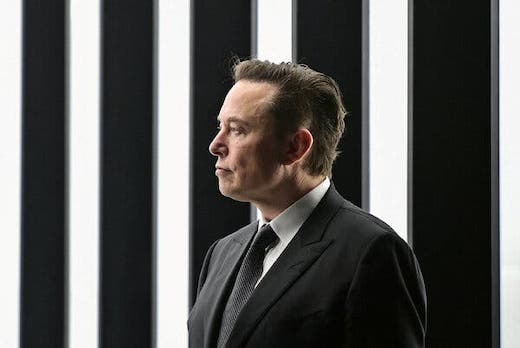Jean-Pierre Page: in Gaza, France’s CGT Union Turned Its Back on Internationalism

While the CGT proudly participated in the ‘Games of Shame,’ a personal triumph for Macron and his repressive, regressive policies, with the participation of the Israeli delegation and even the Israeli President, who was honored amid the ongoing genocide in Gaza, this letter from Jean-Pierre Page, former head of the CGT’s International Department, condemns the betrayals of France’s leading trade union.
Jean-Pierre Page sent this message (see original in French here) to an elected CGT representative who, on January 29, wrote against an open letter calling for genuine support for the Palestinian cause. He claimed the signatories were merely opponents of the current CGT leadership seeking reasons to criticize them, arguing that the CGT’s international meetings had never focused more on the Palestinian issue and that the union had been active in mobilizations. He dismissed the open letter as lacking concrete proposals and accused its authors of internal manoeuvring rather than genuine advocacy.
Both Jean-Pierre Page, a prominent signatory of the open letter, and I, the initiative’s originator, reacted the same day with the messages below, both of which went unanswered. Subsequently, I faced defamation, threats, and exclusion from the CGT local Teacher’s Union of Puy-de-Dôme (central France) on April 12th, with national CGT authorities confirming this exclusion on June 25th. These repressive measures also aimed to discredit and intimidate all signatories challenging the CGT’s stance on Palestine (see this petition detailing the facts and demanding my reinstatement).
For more on the CGT’s involvement in the Olympic Games, see the revealing interview with Bernard Thibault, the CGT’s celebrated Olympic torchbearer. Thibault downplays labor code violations, claims that there have been “no fatal accidents” on the Olympic construction sites (despite seven deaths), and explains social cleansing with misleading justifications. Also, see “The CGT Union Bears the Olympic Flame and Validates Macron’s Social Truce” and “Olympic Games: Mass Surveillance and Political Discrimination”.
Message from Jean-Pierre Page
[Notes in square brackets by Alain Marshal]
Dear Comrade,
I have read your comments on the Appeal and your refusal to support it. I concur with Alain/Salah’s response and arguments [see below], so I won’t reiterate them. I have frequently expressed my views on the situation in Gaza, the West Bank, and Jerusalem, and on the broader geopolitical stakes. More generally, I have written about the historical dispossession of Palestine, which has been colonized and dissected for a century, and whose people have endured martyrdom. The Palestinian people is currently subjected to a policy of extermination and genocide by Israel, a criminal state whose impunity is guaranteed by Western governments.
Do you share this view? If not, I find it damning for a CGT activist, considering that this is the only union in France whose proclaimed internationalist commitment is part of its foundations and values. Certainly, not just any kind of internationalism! Not the rhetoric from Congresses that the CGT leadership feeds us, but a consistent class-based internationalism, one that is anti-imperialist and anti-capitalist. Not just in words, but in deeds.
I was a member of the Confederal Executive Commission for 20 years and head of the CGT’s International Department for 10 years. This doesn’t give me more authority than others, but since the refocusing of our Confederation, I have observed that the CGT leadership has not only abandoned our internationalist principles but, worse, has aligned itself with the official narrative shared uncritically with the ETUC [European Trade Union Confederation] and the ITUC [International Trade Union Confederation, formerly the ICFTU, which broke with the WFTU — World Federation of Trade Unions dominated by Communists] whose complicities and compromises are well-documented. Let’s be clear: the CGT now follows a different international ‘policy’, aligned not with today’s world but with yesterday’s. Internationally, the CGT is on the wrong side of the barricade. Since the 53rd Congress [in 2023], the situation hasn’t improved but deteriorated.
This is particularly the case with positions in line with current trends and declarations condemning the October 7 action, which aim to stigmatize the armed and political struggle of an entire nation through the Palestinian resistance organizations that the people have established for themselves, without exception. I regard October 7 as a historic act, for which the Palestinians are paying a high price with extraordinary courage. This was also true in other anti-colonial struggles, such as in Algeria, Vietnam, China, and Africa. What’s different now? In practice, solidarity is no longer the position of the CGT’s International Department. I regret this deeply.
In my open letter to Sophie Binet [CGT Secretary General], I outlined several arguments about the historical causes of this liberation struggle, which can only be resolved through the self-determination of the Palestinian people. I made similar points in the Appeal I initiated, which gathered 300 French and international figures in support of the “Palestinian people on their feet, who do not want to live on their knees”. Yet, for obvious reasons, the CGT has chosen not to clarify “how it came to this”. In the latest issue of Ensemble — La Vie Ouvrière [the CGT’s monthly magazine], I encountered astonishing comments legitimizing Israel’s actions. This is not merely due to the weaknesses and gross ignorance of the CGT’s International Department but is a deliberate choice, reflecting a broader orientation. It stands in stark contradiction to the CGT’s historical international commitments, such as those made by the CGTU with Abdel Krim during the Rif War in 1925.
In the 1970s, I lived and worked in this region, alongside the Palestinian and Lebanese resistance. The CGT once enjoyed great prestige there, as I can personally attest. Today, that prestige has been lost. How did this happen? In 1996, I accompanied Louis Viannet [former CGT Secretary General] to Beirut, where we met with all progressive organizations, including Hezbollah, and to Gaza, where we had an extensive discussion with Yasser Arafat. I recall his warm praise for the CGT’s efforts and its capacity to maintain fraternal relationships with all the trade unions and political organizations of the Palestinian resistance. This is no longer the case, and the reason is quite clear. Contrary to the decisions of the Confederal Congress, the CGT leadership has chosen to make selective alliances. For instance, it ostracizes the oldest Palestinian trade union confederation [the Palestinian General Federation of Trade Unions], due to its affiliation with the WFTU. Do you support this stance? Conversely, the CGT refuses to sever ties with the Histadrut, a historic pillar of Israeli Zionism known for its corruption and unwavering support for Netanyahu. Do you agree with this? Additionally, the CGT no longer has relations with Syria, Iraq, or Jordan, and its ties with FENASOL in Lebanon, also affiliated with the WFTU, have become merely formal. Do you consider this acceptable?
These are just a few examples to help you reconsider and refine your arguments, which frankly fall short of what should be expected from a CGT militant who claims to be in solidarity. In reality, solidarity with what and how? Do you or do you not support the right to armed struggle, a legitimate right recognized by the United Nations Charter?
Shouldn’t we address this question and have the courage to answer it clearly? Why do we support armed struggle in Ukraine but not in Palestine?
You see, to me this choice belongs to the Palestinian people, and it is certainly not up to their class adversary — imperialism — to decide for them, especially in this area. This is why our internationalism must be substantive. Clarity is essential — indeed, indispensable. That’s why I signed this Appeal, as it contributes to this. All that’s left for you to do is sign it!
Fraternally yours,
Jean-Pierre Page

Message from Alain Marshal
Dear Comrades,
I’d like to take the liberty of responding to the comrade’s comment. I don’t see this as a ‘personal opinion on the document,’ as our 5 pages of detailed and referenced arguments are entirely ignored, with no mention of potential flaws. What stands out instead is a sweeping ad hominem attack on dozens of signatories from diverse backgrounds, accusing them, without a shred of evidence, of insidious motives. This baseless accusation, claiming comrades are exploiting the genocide in Gaza to settle personal scores, is unworthy. Misrepresenting the substance of a comment to launch personal attacks is usually a tactic when there are no compelling counterarguments or may even tacitly admit that the CGT’s problematic statements we are highlighting are indeed indefensible. Pitting quantity against quality is unacceptable; calling for a ceasefire while endorsing key (and widely discredited) elements of Israeli propaganda is neither healthy nor constructive.
If you want to argue against signing a document, it would be more appropriate to justify your opposition based on the document’s content or a principled disagreement with the open letter’s approach, rather than casually dismissing the majority of its signatories. Several comrades have declined to sign the letter for valid reasons — whether because a particular point in the petition concerned them, or because they preferred to maintain a different relationship with the CGT Confederation — without resorting to denigrating its initiators and supporters.
The appeal’s fundamental proposals are clear and concrete: we urge the Confederation to stop using pro-Israeli rhetoric and base its declarations on international law, justice, and morality, rather than succumbing to emotional, political and media pressures from our capitals subservient to Washington and its unconditional support for Israel. We could have made even more proposals had the Conf’ not responded so disappointingly — and even contemptuously — to our request, or had it been willing to engage in a genuine internal debate on this issue.
When the dust settles, the propaganda fades, and the truth about the events of October 7 and their aftermath becomes clear, the CGT will be credited for having leaders, members, and sympathizers who recognized what was happening and did their utmost to urge the Confederation to reconsider its stance. At a time when efforts to annihilate the Palestinian cause are in full force — including the egregious act of cutting off funding to UNRWA, the UN agency for Palestinian refugees, effectively condemning millions to starvation — it is our moral duty to distance ourselves from anything that could be seen as endorsing what is happening in Gaza. Many revelations since October 7 should have prompted the Conf’ to correct its position, yet it persists in its unacceptable statements. The dire situation in Gaza, the existential stakes for over 2 million Palestinians, the very future of Palestine, and the defense of the CGT’s values and history, which demand a firm stance against colonial oppression and the rejection of war propaganda, compel us to take this stand.
Fraternally yours,
Salah L. (Alain Marshal is a pseudonym used on this blog to uphold my ‘duty of neutrality’ as a public servant)




